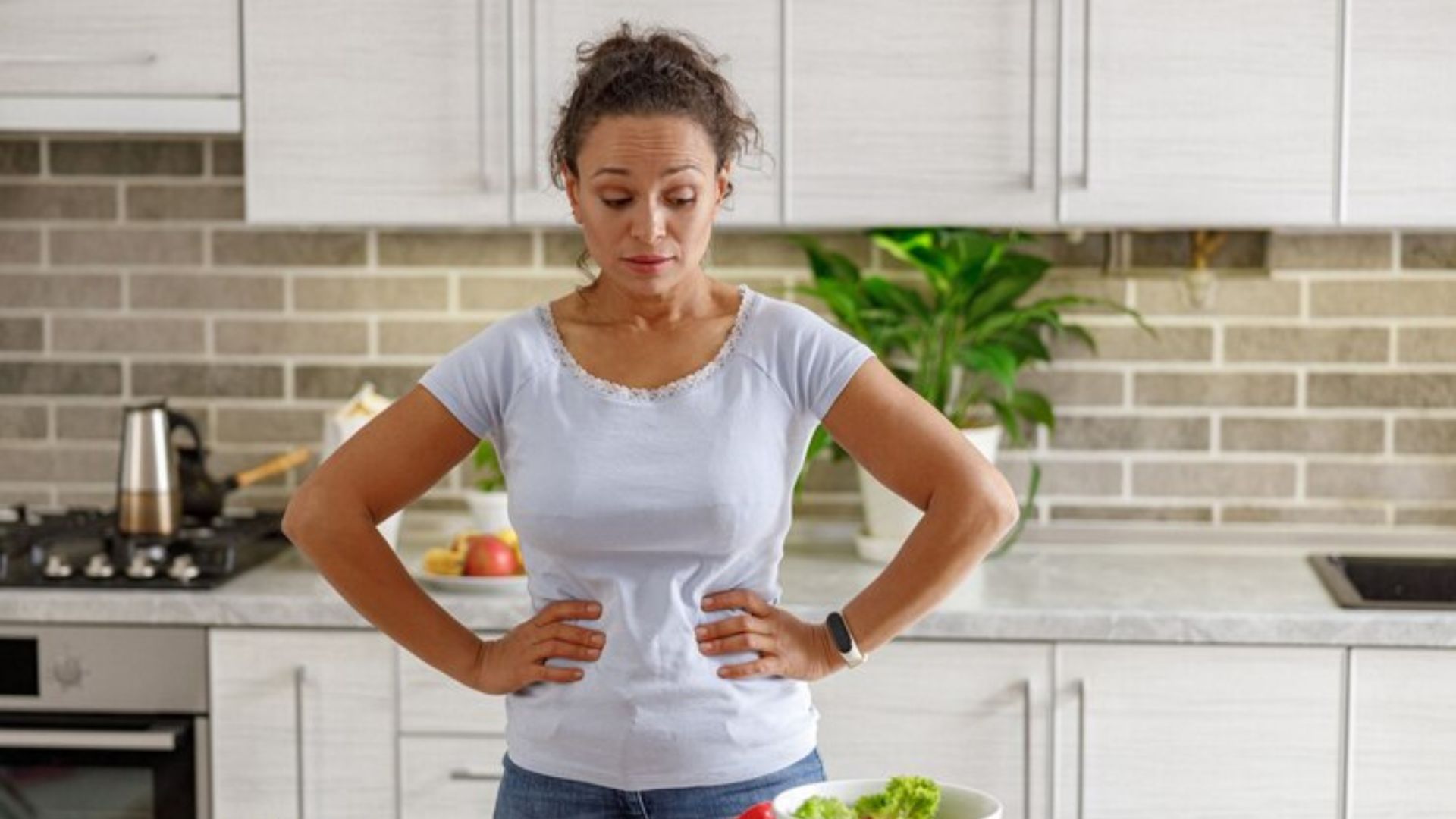Bloating is a common issue that affects many people, causing discomfort and sometimes even embarrassment. It can happen after eating, drinking, or due to a variety of other reasons like stress or a poor diet. The feeling of fullness, tightness, or even visible distension in the abdomen can disrupt your day and make you feel sluggish. Thankfully, there are several ways to get rid of bloating fast. Whether you’re looking for natural remedies, dietary changes, or lifestyle adjustments, this guide will help you identify the root causes of bloating and offer practical solutions for fast relief.
Understand the Causes of Bloating
Before diving into how to get rid of bloating fast, it’s essential to understand the common causes of bloating. Bloating occurs when excess gas or fluids accumulate in the digestive system. This can happen for a variety of reasons, including:
Overeating or eating too quickly: This can lead to swallowing air, which may result in bloating.
Digestive issues: Conditions such as irritable bowel syndrome (IBS), constipation, or food intolerances can cause bloating.
Excess gas production: Foods that are difficult to digest or that cause fermentation in the gut, such as beans, cruciferous vegetables, and carbonated drinks, can lead to gas buildup.
Hormonal changes: Many women experience bloating during their menstrual cycle due to hormonal fluctuations.
Stress and anxiety: These can affect the digestive process, leading to bloating.
Food sensitivities: Some people may have intolerances to dairy, gluten, or certain sugars that lead to bloating.
Understanding the cause of your bloating is the first step in finding effective relief.
Drink Water to Reduce Bloating
One of the simplest and quickest ways to get rid of bloating fast is to drink more water. While it may seem counterintuitive, drinking water helps flush out excess salt and fluids from your system, which can be causing bloating. It also aids digestion, preventing constipation that might contribute to bloating.
Try to drink at least 8 glasses of water per day, and if you’re feeling particularly bloated, consider drinking warm water or herbal teas like peppermint or ginger, which can have a soothing effect on the digestive system.
Avoid Carbonated Drinks
Carbonated drinks, including sodas and sparkling water, contain carbon dioxide, which can create gas in your stomach. This gas can expand, leading to the sensation of bloating. For fast relief, it’s best to avoid these drinks, especially when you’re already feeling bloated. Opt for water, herbal teas, or non-carbonated beverages instead.
Try Digestive Enzymes
Digestive enzymes are natural compounds that help break down food more efficiently in the digestive tract. Taking a digestive enzyme supplement may help reduce bloating caused by poor digestion or food intolerances. They can be particularly helpful when you’re eating meals that are difficult to digest, such as those high in fiber, fats, or protein.
Enzyme supplements are widely available, but be sure to consult your doctor before using them, especially if you have existing digestive issues or health concerns.
Eat Smaller Meals Slowly
One of the causes of bloating is overeating or eating too quickly, which leads to swallowing air and overloading the digestive system. To prevent this, try eating smaller meals throughout the day and chewing your food more thoroughly. Eating slowly allows your digestive system to break down food more effectively and reduces the amount of air swallowed, helping to prevent bloating.
Incorporate Probiotics into Your Diet
Probiotics are beneficial bacteria that support gut health and help balance the microbiome in your digestive system. When your gut flora is in balance, digestion improves, and bloating may be reduced. Incorporating probiotic-rich foods like yogurt, kefir, sauerkraut, kimchi, or miso into your diet can help maintain a healthy gut and reduce bloating.
If probiotic foods are not enough, consider taking probiotic supplements, but always consult a healthcare provider before starting any new supplements.
Reduce Salt Intake
Excess sodium in your diet can cause your body to retain water, leading to bloating. Processed foods, fast food, and snacks are often high in salt, which contributes to fluid retention. To get rid of bloating fast, try reducing your salt intake by avoiding processed foods and cooking with fresh ingredients. Opt for herbs and spices to add flavor to your meals instead of salt.
Try Herbal Remedies for Bloating
Certain herbs have natural anti-inflammatory and digestive properties that can help alleviate bloating. Some of the most effective herbs for bloating relief include:
Ginger: Known for its ability to reduce inflammation and aid digestion, ginger is an excellent remedy for bloating. You can drink ginger tea or add fresh ginger to your meals.
Peppermint: Peppermint is another herb that can help relax the muscles in the gastrointestinal tract and relieve bloating. Peppermint tea or peppermint oil capsules can help.
Chamomile: Chamomile tea can help soothe your digestive system and reduce bloating by relaxing the stomach muscles.
These herbal remedies can provide fast relief from bloating and can be easily incorporated into your daily routine.
Exercise to Relieve Bloating
Physical activity is one of the best ways to get rid of bloating fast. Exercise stimulates the digestive system, helps release trapped gas, and improves overall gut function. Even a short walk can provide immediate relief from bloating by moving gas through the intestines and encouraging the digestive process.
If you’re looking for more targeted exercises, yoga poses like the “wind-relieving pose” and “child’s pose” can help alleviate bloating by encouraging the release of gas and improving digestion.
Identify and Avoid Trigger Foods
Certain foods can cause bloating due to their high fiber content, fermentation properties, or potential to cause intolerance. Common trigger foods include:
Beans and lentils
Cruciferous vegetables (broccoli, cauliflower, cabbage)
Dairy products (for those who are lactose intolerant)
Foods containing gluten (for those with gluten sensitivity or celiac disease)
If you suspect a food intolerance is contributing to your bloating, try eliminating potential triggers and monitor how your body responds. Keeping a food diary can help you identify patterns and pinpoint specific foods that cause bloating.
Practice Stress-Reduction Techniques
Stress can have a significant impact on your digestive system, often leading to bloating, indigestion, and other gastrointestinal issues. Finding ways to manage and reduce stress can help alleviate bloating caused by anxiety or emotional strain. Meditation, deep breathing exercises, yoga, and even journaling are all effective stress-reduction techniques that can help improve your overall digestive health and reduce bloating.
Conclusion
Bloating is an uncomfortable condition, but the good news is that it can often be alleviated quickly with the right approach. By staying hydrated, avoiding carbonated drinks, consuming digestive enzymes, and making dietary adjustments, you can get rid of bloating fast. Herbal remedies, probiotics, and regular exercise can further support your digestive health, providing relief and preventing future bloating. Most importantly, identifying and avoiding foods or triggers that cause bloating, as well as managing stress, can help you maintain a flat and comfortable stomach.
ALSO READ:How To Support Brain Health with Food: A Guide to Nourishing Your Mind
FAQs
What is the fastest way to get rid of bloating?
The fastest way to get rid of bloating is by drinking plenty of water, taking a walk to stimulate digestion, and avoiding carbonated drinks and high-sodium foods. You can also try herbal teas like peppermint or ginger to reduce bloating quickly.
Can stress cause bloating?
Yes, stress can affect digestion and lead to bloating. Stress can slow down or disrupt the digestive process, causing gas buildup and discomfort.
How long does bloating usually last?
Bloating typically lasts for a few hours, but it can vary depending on the cause. In some cases, bloating may persist for a day or two, especially if it’s related to a dietary trigger or digestive issue.
Are there foods that help with bloating?
Yes, foods like bananas, papayas, yogurt with probiotics, and ginger can help reduce bloating. These foods support digestion and can ease discomfort.
When should I see a doctor for bloating?
If bloating is persistent, painful, or accompanied by other symptoms like severe abdominal pain, changes in bowel movements, or weight loss, it’s best to consult a healthcare professional to rule out underlying conditions.







